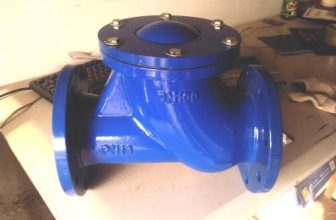[ad_1]
Material selection and requirements for gas valve of underground pipe network
The material selection and requirements of the gas valve of the underground pipe network have their own unique places. The following will analyze and explain these two points:
Material selection of underground pipe network gas valve
According to the operating pressure of the gas pipeline, the reasonable selection of the valve shell material can not only meet the safe operation of the pipeline, but also achieve the purpose of reducing the cost and making the best use of the material. 1) For transmission and distribution pipelines with medium pressure class B (12 MPa) or less, gray cast iron valves are recommended. Its major advantages are good corrosion resistance and low price, so it is very suitable for underground pipelines. 2) Below the high pressure class B (18 MPa), or even below the medium pressure class A (014 MPa), it is recommended to use valves made of ductile iron or cast steel, with emphasis on ductile iron. For example: Comparing ductile iron grade QT400218 with cast steel grade WCB, the mechanical properties of the former are not lower than the latter, while the corrosion resistance and casting process are better than those of cast steel, and the price is also lower than that of cast steel (usually 70% of cast steel). %about). Therefore, the overall performance and price of ductile iron valves are better than those of cast steel valves. In the above pressure range, ductile iron valves should be selected as much as possible, but special attention should be paid to the monitoring of the material quality of ductile iron. 3) When the high pressure A-level (116 MPa) or higher pressure level is used, it is recommended to use cast steel valves to manufacture valves below 4MPa pressure level, generally WCB grades are used. 4) In recent years, local gas companies have begun to use PE pipes, and PE pipes are currently used below the pressure level of 014 MPa. PE ball valve has also come out. This series of ball valves can be directly buried and have better sealing performance. But at present, the price of PE ball valve is relatively high, especially the ball valve with diameter larger than 100mm.
Requirements for Gas Valves in Underground Pipe Networks
1. Reduce the height of the valve structure as much as possible (referring to the height from the centerline of the flow section of the valve to the top of the valve) to reduce the depth of the buried pipe.
2. The top of the valve should be equipped with a fully enclosed opening and closing indicator, which is easy to check the state of the valve, which is an important condition for safe operation.
3. Various pipelines under the urban roads in my country are crowded and complicated, and it is not suitable to excavate basement manholes. Therefore, directly buried valves are recommended.
4. The shell of the gas valve used in the underground pipe network should be resistant to corrosion. It is recommended to use different shell materials according to the transmission medium and operating pressure of the pipeline.
5. Full-bore design reduces flow resistance and facilitates passage of pipeline cleaners or pipeline detectors. It should also meet the requirements of non-stop closed hole-opening machines to open holes in pipelines.
6. The vast majority of underground pipeline valves are manually opened and closed, which requires a small opening and closing torque of the valve, a reasonable number of turns in the whole process, and the gas source can be cut off as soon as possible after an accident occurs.
7. The design of valve parts should consider the use of less maintenance or maintenance-free structure, reduce the workload of maintenance as much as possible, and reduce the traffic caused by closed roads due to valve maintenance.
8. Reliable sealing performance, soft-sealed valves are not allowed to have any perceptible internal leakage under 111 times the nominal rated operating pressure, and the allowable internal leakage of hard-sealed valves is less than 13DN mm3/s under 111 times the nominal rated operating pressure. This requirement is relatively strict, for example: the internal leakage of a 500 mm nominal diameter gas valve cannot be greater than 9 ml/min, and external leakage is absolutely not allowed.
The above is the material selection and requirements for the gas valve of the underground pipe network shared with you today. Reading these eight points carefully will definitely bring you a lot of help. If you find it useful, thank you for forwarding it~
[ad_2]





